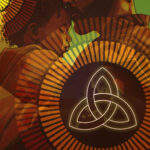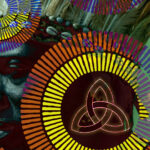The loss of a loved one is one of the most painful experiences in life. It leaves a hole in your heart, a longing that cannot be filled. When we lose loved ones, we hope that they are in a better place. We hope that one day we will join them. In cases of the old or terminally ill passing away, we speak about them finally resting. And while losing someone is never easy, it’s almost always tougher when someone dies young or unexpectedly. So we attempt to soften the grief with speak of them going to a better place, even partying it up in heaven. In the face of death, many Africans speak of the ancestors, while many others hope in Christ. Is there any real difference between those?
What we say at funerals reveal our worldview, our beliefs about what happens to people when they die.
The things we say at memorial services and funerals express our worldview. They reveal our beliefs about what happens to people when they die. This article compares traditional African beliefs about life after death with the Christian faith. My contention is that Christianity offers Africans a greater hope. But before making this argument, we must consider an important question it raises. As an African, content within my own worldview and beliefs, why should I turn to Christ?
There is Life After Death
Approaching that question, we cannot deny some similarities between African Traditional Religions (ATR) and Christianity. This is especially true regarding beliefs about death and the afterlife. However, noticeable differences become evident when looking at the specifics. Generally, both ATR and Christianity affirm the doctrine of life after death. So, for example, Jesus consoled a dying man by saying: “Today you will be with me in paradise” (Luke 23:43). Many Africans express this belief in the afterlife by honouring the dead. Sacrifices are made to appease the ancestors, and find favour with them.
Both African Traditional Religions and Christianity affirm the doctrine of life after death.
In Lesotho, I met an elderly woman who drew comfort at the hope of seeing her husband after death. She spoke of waiting for him to call her home, when they would be together. We can find similar sentiments in the Bible. For example, David sought consolation when his son died by saying “now he is dead. Why should I fast? Can I bring him back again? I shall go to him, but he will not return to me” (2 Samuel 12:23). Similarly to that elderly woman and king David, Christians look forward to being reunited with loved ones who’ve gone to be with the Lord.
Do The Ancestors Offer Us True Hope?
These similarities make it necessary for us to ask: “What does Christianity offer an African that she doesn’t have within her traditional beliefs?” Africans value their culture, traditions, and rich heritage. Since both generally affirm life after death, are the differences significant enough to give some of that up?
I believe that a common mistake on the continent has been to demonise or simply infantilise traditional African beliefs. But such an approach predictably alienates Africans from the Christian faith. We need not insult traditions and defame beliefs. Instead we should approach ATR as a worldview, worthy of honour and thoughtful engagement. So my intention here is not to dishonour ATR, but to compare it with the Christian faith. As I do this, I’m convinced that in Christ God offers us something we cannot have within our own traditional beliefs.
A common mistake on the continent has been to demonise traditional African beliefs.
This is not dissimilar to the approach Paul took in Athens. Even though “his spirit was provoked within as he saw that the city was full of idols” (Acts 17:16), he said to them, “men of Athens, I perceive that in every way you are religious. For as I passed along and observed the objects of your worship, I found also an altar with this inscription, ‘To the unknown god.’ What therefore you worship as unknown, this I proclaim to you” (Acts 17:22-23).
Paul offered the Athenians a better hope. He didn’t lampoon their practices, but rather introduced them to the God who “does not live in temples made by man” (Acts 17:24). Paul preached that God does not need anything from us because he gives “life, breath, and everything” (Acts 17:25). Those who believed on that day did so because Paul showed them a better way (Acts 17:34). As Paul said to the Athenians, I say to Africans: turn to Christ because he offers us something better.
Christ Promises Something That The Ancestors Cannot
Death will inevitably interrupt our lives and relationships. So we need a sure hope that is greater than death. We need something more than platitudes and the vague sense that something follows this life. You and I need to know for certain, that death will not have the final say (1 Corinthians 15:54-57). This is where the biggest difference opens up between ATR and the Christian faith. What does Christianity offer us that Africans don’t possess in their traditional beliefs? An intimate relationship with God.
On the one hand, Jesus said he is the only way to God the Father (John 14:6). But you might disagree with that. And if you do, you’re already aware of the stark difference between Christianity and ATR: the ancestors mediate between God and the living, therefore only the ancestors have the privilege of truly knowing God. That is true in both life and death, because not all Africans will become ancestors when they die.
When Africans become Christians they enjoy the privileges reserved for ancestors.
On the other hand, when Africans becomes Christians they enjoy the privileges reserved for ancestors. We can have an intimate relationship with God, both in life and death. We don’t rely on an ancestor to mediate now, because we have Christ; nor do we live with the uncertainty about whether we will become an ancestor in death. We can approach God’s throne with boldness (Hebrews 4:16). As Jesus said to the crucified sinner, when we turn to him out of a recognition of our sins, asking for mercy, we will be with him in death (Luke 23:43).
This means that we do not have to become ancestors to see God. Every African in Christ will see and be with God after death. The promise is made to all of us, not only to those who qualify to be ancestors. So, how are you looking ahead, through traditional beliefs or Christ?














